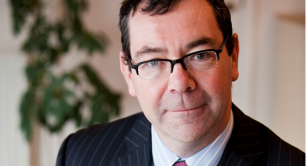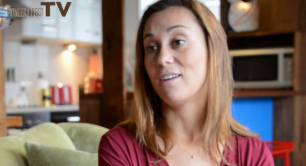‘Fear’ of mergers still haunting charity and social enterprise bosses
The latest figures from this year's Good Merger Index show a ‘negligible’ number of UK organisations are using mergers strategically. Being clearer about timeframes – and taking a lead from couples counselling – could help them address the emotional barriers, experts say.
Mergers among UK charities and social enterprises are still few and far between – with just 58 reported last year, according to latest figures.
Published yearly by consultancy Eastside Primetimers, this sixth edition of the Good Merger Index concludes that social sector bosses still “fear” undertaking mergers, with only a “negligible” number using them strategically.
The research does not distinguish between charities and social enterprises, and covers all reported mergers in England and Wales in 2018-2019. This year’s figure within the range of the past six year’s findings, which have typically unearthed 55-75.
In 2018-2019, 54% of the 116 organisations merging were under £1m, 23% between £1-5m, 10% between £5-10m and the remainder over £10m. The biggest deal was the merger of Breast Cancer Now and Breast Cancer Care, with a combined income of £46.7m.
Researchers said – although mergers could bring huge benefits – human emotion remained a “key barrier” to discussions about possible tie-ups, particularly given the enormous emotional investment of nonprofit staff, trustees and beneficiaries in their organisations.
In the private sector, mergers are “all about bottom lines and money”, Dave Garratt, director of mergers and governance at Eastside Primetimers, told Pioneers Post. “In the voluntary sector, decisions… are made of course on the basis of all that objective stuff, but inevitably also on very emotive and passion-based things.”
Sharing emotions
This means those considering mergers should be “very honest from the beginning about what everyone’s red lines and feelings are”, he said – and raise them well before any technical analysis begins. “The analogy of relationship counselling and bringing couples together always comes up.” The entire board, on both sides, should also be involved from the outset, Garratt added.
Completing a charity mergers can happen in as little as three months, but discussions between CEOs or chairs can often go on for years, according to Garratt, who advised setting a fixed period of three months to go through all the possible risks and benefits. “Don’t expect the process to happen just by having board meetings.”
Organisations whose boards have more commercial expertise and even experience of mergers may be better-placed to undertake mergers themselves, he said, but social enterprises would face just as much consideration of “values and passion and emotion” as a pure nonprofit.
Recently 30-year-old social enterprise FRC Group acquired the local authority division of a major private sector competitor David Phillips. CEO Shaun Doran said the acquisition was possibly more challenging than taking on another social business, but that the process had confirmed acquisition as “a route to growth”.
Thanks for reading our stories. As somebody working in the impact economy, you'll know that producing quality work doesn't come free. We rely on paid subscriptions and partnerships to sustain our purpose-led journalism – so if you think it's worth having an independent, specialist media platform to share your news, insight and debate across the globe, please consider subscribing. You'll also be buying social: Pioneers Post is a social enterprise itself, reinvesting all profits to help you do good business, better.
EDITOR'S NOTE (03/02/2020): The final paragraph has been updated to clarify that the acquisition refers to David Phillips' local authority division only.


